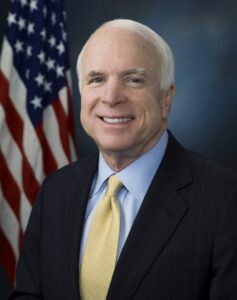Helping Puerto Rico has been one of the most significant challenges faced by the United States this year. As an island territory, most of our citizens living there do not pay federal income tax but do pay other taxes that add up to $3 billion annually. Their representation in government is severely limited, with their only congressional representative being delegate Jenniffer González-Colón (R). They have no say in the general presidential election. Due to their handicapped representation, it is indisputable that it is the US government’s responsibility to offer sufficient assistance with both disaster relief and economic recovery. As to what exactly the government must do, I would like to examine some key points of consideration for any worthwhile plan.
First of all, I must address the ubiquitous question of statehood. Puerto Rico has this year, in a non-binding referendum, voted overwhelmingly in favor of statehood with 97% of the votes-but this statistic comes with a major caveat, that being that only 23% of voters actually cast a ballot. Regardless, the governor of PR, Ricardo Rosselló (D), has firmly embraced the results, going so far as to choose “two senators and five representatives — the numbers Puerto Rico would have based on its population — to go to Washington and demand to be seated.”
Congress now has the right to begin the process to grant statehood, as allowed by the Constitution in Article IV, Section 3. The likelihood of Congress taking this forward is very slim, as the National Constitution Center explains. People in several regions have used “taxation without representation” as grounds to petition for becoming their own state, giving examples such as Chicago, Boston and Long Island, NY. The situation is very different in Puerto Rico however, and it may very well be true that the best long-term solution for Puerto Rico’s woes would be statehood.
But since statehood is likely not going to happen in the near future, let’s for a moment examine a “grand bargain” that was just recently proposed by CNN’s Fareed Zakaria. His idea centers on a cooperation between the federal and territorial governments that would begin with “a large, multi-year, multi-billion dollar program of investment, should restructure Puerto Rico’s debt and repair the island’s infrastructure.” In exchange for this very significant assistance, Puerto Rico would be compelled to enact “difficult” economic policies. As for what these “difficult” policies would entail, he refers to some ideas put out by the famous and respected economist Anne Krueger, to share some of her plans for making the island more “business friendly”.
Some of the proposals are common-sense fixes like reducing the cost of electricity and repealing the Jones Act, which has recently proved to be a major roadblock to getting urgently needed goods to the island-Senator John McCain has eloquently argued why the law has got to go. Where I disagree with the economist and the journalist is their absurd proposal to lower the minimum wage. Zakaria tries to defend this idea with Krueger’s statistics: “According to Krueger, the head of a family of three earning minimum wage on the island brings home about $1,100 per month, while that same person could get about $1,700 just being on welfare. With a disincentive to work like that, is it any surprise that before the storm just 40% were employed or seeking work, versus about 63% for the overall US labor force?

Senator McCain has said that “It is unacceptable to force the people of Puerto Rico to pay at least twice as much for food, clean drinking water, supplies and infrastructure due to Jones Act requirements as they work to recover from this disaster. Now, more than ever, it is time to realize the devastating effect of this policy and implement a full repeal of this archaic and burdensome Act.” (Image via Wikimedia Commons)
Zakaria is severely lacking in reasoning with this argument. Obviously, I agree that welfare payment should not exceed the minimum wage. But how would lowering the minimum wage possibly solve that issue? If anything, it would only decrease the incentive to work unless the welfare payments were lowered equally, which would mean the ratio would stay the same, with the only difference being that poor residents would be made poorer. Zakaria seems to be implying that an abysmal wage of $1,100 per month is too much, which is an argument that is just indefensible. As for Krueger’s proposals for welfare reform, he mentions cutting benefits as one of the “difficult” policies, which, once again, would serve to only make the poor poorer.
Picture this scenario: you, as an American citizen, with no voting representatives in the House, Senate or Electoral College, earning minimum wage, facing the recent destruction of your house and possibly months without electricity, are now told that the only way to pay off your island’s debt is to accept an even lower wage without the possibility of a social safety net in case you lose your job (possibly because your workplace was also destroyed by the storm)? Absolutely unacceptable. Zakaria’s “grand bargain” is elitist and half-baked, and is simply not what the people of Puerto Rico need right now.
I say that the best way for the federal government to help the citizens of Puerto Rico in the short term, besides continuing and escalating the recovery efforts, would be with a Rooseveltian jobs program to put unemployed and underemployed residents to work rebuilding the island’s infrastructure. By paying them a fair wage, they will be able to pay their fair share of taxes that would then go towards mitigating the island’s debt. Congress must also heed Senator McCain’s call to repeal the Jones Act immediately. At least with such a plan, Puerto Rico’s future would be assured until Congress has a chance to finally address the question of statehood once and for all.


